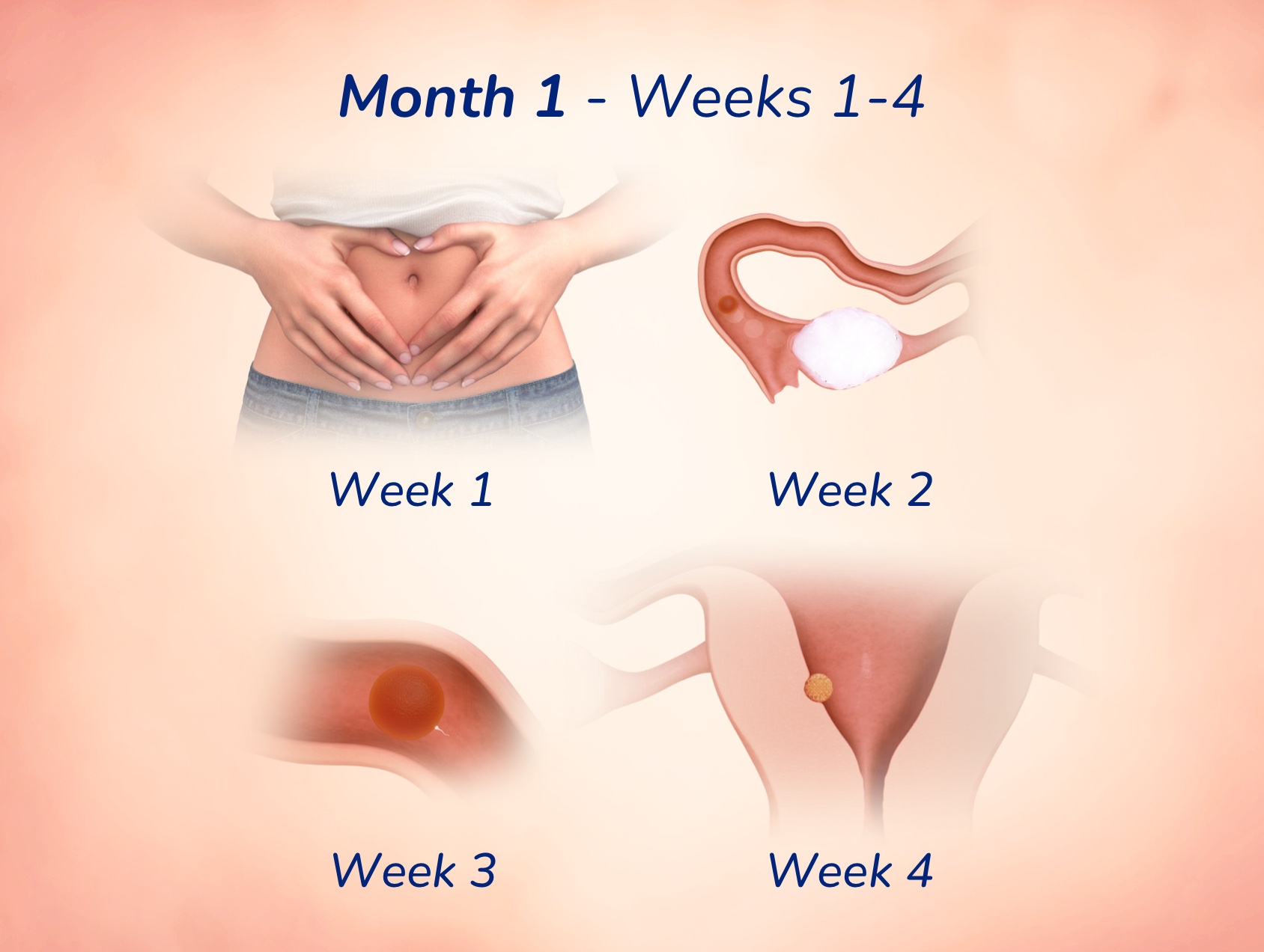
Due to maintenance, rewards points for receipt uploads will be delayed. Thank you for your patience!

From hormonal shifts to body changes, here's what you can expect during month one of pregnancy.
At one month pregnant, you may be experiencing lots of physical and emotional changes as your body adjusts to your new little one. Whether you suspect a baby is on the way or you’ve already received a positive result on a pregnancy test, it’s helpful to know the earliest indications of this life-changing event. Let’s look at the ways your body and mood could change and how to prepare for this exciting nine-month journey.
A missed period is one of the earliest indicators a little one could be on the way. When you’re pregnant, your body’s newly produced hormones halt ovulation. While there are other potential reasons for a delayed menstrual cycle—such as weight changes, stress, or hormonal fluctuations—if your period is overdue by a week or more and you’re in your childbearing years, pregnancy could be a possibility.
Nausea and vomiting, commonly known as “morning sickness”—a misnomer because it can occur at any time of day or night—often begins at week six but can kick in as early as the first month of pregnancy. Its cause is not entirely known, but hormones are believed to play a role. Try eating crackers and smaller, more frequent meals throughout the day, which may provide some relief. Ask your doctor for more support if your nausea becomes severe.
At one month pregnant, you could feel a bit bloated. Your pants may feel a little tighter, and you may experience burping and flatulence. Try not to worry about it too much!
If it's especially troubling to you, consider keeping a food diary to see if certain foods or drinks, such as carbonated drinks or cabbage, aggravate the situation and cut back or avoid those culprits. Some women also find that regular exercise and eating slowly can help keep those internal bubbles at bay.
You may experience spotting or very light bleeding, called implantation bleeding, when fertilization occurs. This typically happens between 10–14 days after conception. If you are concerned about the bleeding, reach out to your doctor.
Sensitive, swollen breasts and nipples are one of the first things you might notice at this early pregnancy stage as hormones begin preparing your body to feed your bundle of joy. Your breasts will continue to enlarge throughout your pregnancy. If you’re dealing with breast soreness, try easing your discomfort by wearing a supportive bra, taking a warm shower, or applying a cool compress.
Feeling extra sleepy and sluggish is typical in the first month of pregnancy. If you’re struggling with an energy zap, try squeezing in some naps if possible, exercising as recommended by your doctor, and eating small, healthy foods throughout the day.
One minute you’re giddy with joy; the next you’re worried about your baby’s health and your ability to parent. Mood swings are common in early pregnancy. They’re caused by shifting hormone levels, fatigue, and other physical and emotional changes and stressors that accompany the incredible experience of growing a little human.
As a mama-to-be, you may be anxious about what’s going on with your baby and if you’re doing anything that could negatively impact their development. Perhaps you’re concerned about labor or your financial situation. Getting enough sleep, eating well, and connecting with your partner, family, and friends may help manage stress. If you’re experiencing severe mood swings or bouts of sadness that don't improve, reach out to your doctor.
When you’re pregnant, every day can be a whirlwind of anticipation. When will I meet my little one? What will they look like? Consider keeping a journal to chronicle your pregnancy and journey to parenthood. Pregnancy is a thrilling life milestone, and while you may not be physically feeling your best right now, the best is yet to come.
At one month pregnant, your belly probably won’t be showing yet, even though you’ll be experiencing plenty of amazing changes on the inside.

During the first month of pregnancy, the fertilized egg travels to the uterus, where your baby will grow and develop for the next nine months. The placenta and the beginnings of the brain and spinal cord start to form. Around week four, your baby will be the size of a poppy seed!
All information on Enfamil, including but not limited to information about health, medical conditions, and nutrition, is intended for your general knowledge and is not a substitute for a healthcare professional's medical identification, advice, or management for specific medical conditions. You should seek medical care and consult your doctor or pediatrician for any specific health or nutrition issues. Never disregard professional medical advice or delay seeking medical treatment, care, or help because of information you have read on Enfamil.